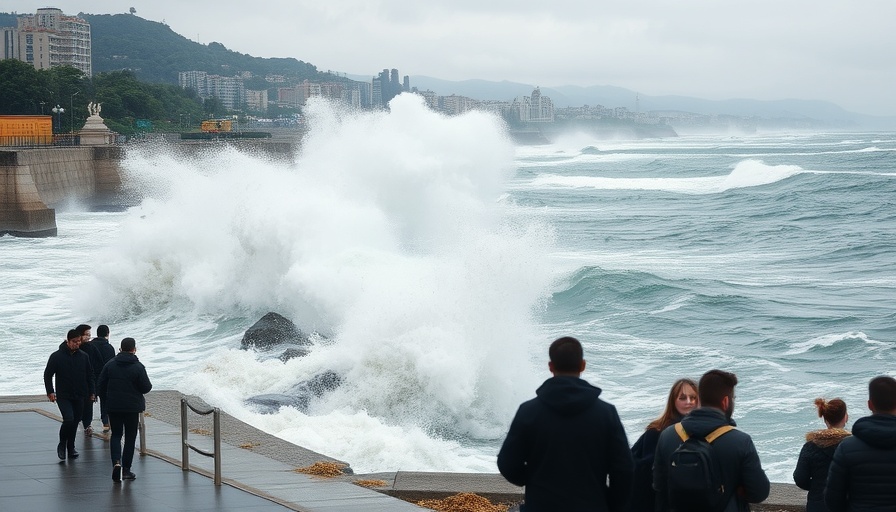
The Growing Concern of Climate Change in Southeast Asia
As the world continues to grapple with the pressing issues of climate change, recent insights reveal a significant shift in the priorities of Southeast Asian nations. The countries of the Philippines, Vietnam, Malaysia, and Thailand have unanimously named extreme weather as their foremost concern, eclipsing previous anxieties surrounding joblessness and economic downturns. A study conducted by the ISEAS-Yusof Ishak Institute illustrates that a striking 55.3% of respondents now view climate change and extreme weather events as the region's biggest challenge, highlighting the escalating impact of climate-related disasters.
Extreme Weather Events: A Looming Reality
Extreme weather phenomena are becoming increasingly common in Southeast Asia, with recent years showcasing unprecedented climate-induced disasters. In the Philippines, for instance, the nation faced relentless storms in late 2024, which was described as a barrage even for a country accustomed to natural calamities. The repercussions of last year’s above-average typhoon season are stark. Typhoons have not only caused destruction in terms of infrastructure but have prompted conversations about sustainable living and adaptation strategies crucial for affected populations.
Collective Challenges and Shared Solutions
According to Sharon Seah, a senior fellow at the ISEAS-Yusof Ishak Institute, climate change represents a long-term challenge that demands collective action rather than isolated national efforts. Countries like the Philippines and Vietnam, ranked highest in concern towards climate change with percentages reaching 70.9% and 70.3%, respectively, are now seeking collaborative solutions. Nations across the region are recognizing that a unified response to climate change can lead to innovative practices in sustainability.
The Economic Dimensions of Climate Change
The financial implications of climate change are staggering. As natural disasters become more frequent, the economic burden of adaptation and mitigation strategies weighs heavily on governments and citizens alike. Southeast Asian countries must now allocate substantial resources towards disaster preparedness and recovery efforts. This transition towards sustainability and green technology not only aids in mitigating the impact of climate change but also presents opportunities for investment in renewable energy and sustainable practices.
Looking Ahead: Future Predictions for Southeast Asia
As we look to the future, experts suggest that the looming threats of climate change will only intensify. Predictions of more erratic weather patterns and rising sea levels necessitate immediate action to reduce carbon footprints and promote eco-friendly practices. The focus on sustainable agriculture, renewable resources, and green energy initiatives is expected to play a central role in shaping the region’s responses to these challenges. This creates an opportunity for Southeast Asia to pioneer innovative solutions that can serve as models for the rest of the world.
Empowering Communities Through Sustainable Practices
a wide array of social and environmental advantages arise from evolving towards a sustainable future. Engaging local communities in sustainability initiatives not only fosters a culture of environmental stewardship but also promotes the preservation of biodiversity and natural resources. Community gardens, eco-friendly transportation, and ethical sourcing of natural materials can empower residents and facilitate a more resilient economy aligned with green practices.
Conclusion: Mobilizing for Climate Action
As highlighted in this report, the concerns over climate change have taken precedence over traditional economic worries in Southeast Asia. The transition towards sustainable development is not merely an environmental necessity; it represents a transformative opportunity for the region to innovate and lead in tackling one of the most significant global challenges of our time. It is imperative for individuals, communities, and governments to mobilize around climate action to ensure a sustainable future for all.
 Add Row
Add Row  Add
Add 



Write A Comment